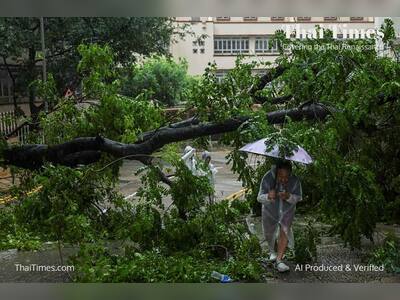Thailand’s Digital Nomad Visa Registers Over 35,000 Applicants in First Year
Destination Thailand Visa resurfaces economy as Bangkok and resorts transform into remote‑work hubs
Thailand’s Destination Thailand Visa (DTV), introduced on 15 July 2024, has attracted more than 35,000 applicants in its inaugural year, according to government data—a significant influx aimed at revitalising tourism and offsetting post-pandemic economic headwinds .
The DTV offers a five‑year multiple‑entry permit that allows holders to stay for up to 180 days per visit, extendable once, with eligibility for freelancers, remote workers and participants in designated “Thai soft‑power” activities, such as Muay Thai training .
Applicants must be aged 20 or over and demonstrate savings of at least 500,000 THB (approximately US $14,000) .
Foreign residents are reshaping local economies, gravitating to coworking spaces, health‑and‑wellness centres, Muay Thai gyms and community cafes in Bangkok, Chiang Mai and Koh Phangan.
One entrepreneur described Thailand’s fast internet, affordable healthcare and vibrant communities as a compelling ecosystem for remote work .
The scheme has taken on greater importance amid slower growth projections.
The World Bank recently reduced Thailand’s 2025 growth forecast to 1.8 percent amid export weakness, political uncertainty and a downturn in traditional tourism, particularly from China .
While visa flexibility has drawn praise, some visa holders report challenges in accessing banking services.
DTV regulations prohibit opening local accounts—a means officials say helps curb financial crime, but one which nomads say complicates daily expenses .
Thailand now joins regional peers including Indonesia, Malaysia and the Philippines in competing to attract long‑stay remote workers.
Compared with these destinations, Thailand offers unmatched flexibility in visa duration and renewal options .
The programme coincides with a larger pivot toward tourism diversification under the current government, which has also expanded visa‑free entry and promoted cultural and sporting events as part of a multi‑year push to boost global visitor numbers under the “Ignite Thailand” campaign .
With digital nomads contributing to local economies and community life, the DTV’s rollout marks a deliberate effort to reposition Thailand as a long‑stay destination and economic hub for remote professionals.
The DTV offers a five‑year multiple‑entry permit that allows holders to stay for up to 180 days per visit, extendable once, with eligibility for freelancers, remote workers and participants in designated “Thai soft‑power” activities, such as Muay Thai training .
Applicants must be aged 20 or over and demonstrate savings of at least 500,000 THB (approximately US $14,000) .
Foreign residents are reshaping local economies, gravitating to coworking spaces, health‑and‑wellness centres, Muay Thai gyms and community cafes in Bangkok, Chiang Mai and Koh Phangan.
One entrepreneur described Thailand’s fast internet, affordable healthcare and vibrant communities as a compelling ecosystem for remote work .
The scheme has taken on greater importance amid slower growth projections.
The World Bank recently reduced Thailand’s 2025 growth forecast to 1.8 percent amid export weakness, political uncertainty and a downturn in traditional tourism, particularly from China .
While visa flexibility has drawn praise, some visa holders report challenges in accessing banking services.
DTV regulations prohibit opening local accounts—a means officials say helps curb financial crime, but one which nomads say complicates daily expenses .
Thailand now joins regional peers including Indonesia, Malaysia and the Philippines in competing to attract long‑stay remote workers.
Compared with these destinations, Thailand offers unmatched flexibility in visa duration and renewal options .
The programme coincides with a larger pivot toward tourism diversification under the current government, which has also expanded visa‑free entry and promoted cultural and sporting events as part of a multi‑year push to boost global visitor numbers under the “Ignite Thailand” campaign .
With digital nomads contributing to local economies and community life, the DTV’s rollout marks a deliberate effort to reposition Thailand as a long‑stay destination and economic hub for remote professionals.











